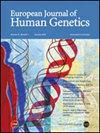Building a hereditary cancer program in Colombia: analysis of germline pathogenic and likely pathogenic variants spectrum in a high-risk cohort
IF 3.7
2区 生物学
Q2 BIOCHEMISTRY & MOLECULAR BIOLOGY
引用次数: 0
Abstract
Genetic studies in Latin America have expanded, but further efforts are needed to understand cancer susceptibility genes beyond BRCA1 and BRCA2, especially by characterizing the prevalence and spectrum of pathogenic or likely pathogenic variants (PVs) in the region. This study aimed to determine the frequency of hereditary cancer syndromes (HCS) in Colombians with solid tumors and to characterize the spectrum of PVs. Using data from the Colombia’s largest Institutional Hereditary Cancer Program, we included patients aged ≥18 years with solid tumors who met HCS criteria and were offered genetic testing with a 105-cancer gene panel. We calculated the prevalence of PVs and HCS by cancer type (beyond breast) and gene. For patients with breast cancer, we examined genotype-phenotype correlations with molecular subtypes and stratified positivity rates by different genetic testing criteria. Among 769 patients, we identified 216 PVs in 43 genes in 197 patients (26%). Thirty-three PVs were recurrent. Autosomal HCS was found in 21% (160/769) of patients (159 dominant, one recessive), while 5% (37/769) were heterozygous carriers of PVs in autosomal recessive genes. In 42% (321/769) of the cases, only one or more variants of uncertain significance (VUS) were identified, whereas 33% (251/769) had neither PVs nor VUS detected (negative results). HCS prevalence varied by cancer type (11–26%). The triple-negative subtype and bilateral presentation were strong predictors of inherited breast cancer. Our study reveals a significant presence of PVs among high-risk Colombian patients with solid tumors, underscoring the importance of genetic counseling and testing in the region.

在哥伦比亚建立一个遗传性癌症项目:在一个高风险队列中分析种系致病性和可能致病性变异谱。
拉丁美洲的遗传研究已经扩大,但需要进一步努力了解BRCA1和BRCA2以外的癌症易感基因,特别是通过表征该地区致病性或可能致病性变异(pv)的患病率和谱。本研究旨在确定哥伦比亚人实体瘤患者遗传性癌症综合征(HCS)的频率,并确定PVs的频谱特征。使用来自哥伦比亚最大的机构遗传癌症项目的数据,我们纳入了年龄≥18岁的符合HCS标准的实体瘤患者,并通过105癌症基因小组进行了基因检测。我们根据癌症类型(乳腺癌以外)和基因计算了pv和HCS的患病率。对于乳腺癌患者,我们通过不同的基因检测标准检测了基因型-表型与分子亚型和分层阳性率的相关性。在769例患者中,我们在197例患者(26%)的43个基因中鉴定出216个pv。33例pv是复发性的。常染色体HCS占21%(160/769),显性159例,隐性1例,常染色体隐性PVs杂合携带者占5%(37/769)。在42%(321/769)的病例中,仅鉴定出一种或多种不确定意义变异(VUS),而33%(251/769)的病例既没有检测到PVs,也没有检测到VUS(阴性结果)。HCS患病率因癌症类型而异(11-26%)。三阴性亚型和双侧表现是遗传性乳腺癌的强预测因子。我们的研究揭示了PVs在哥伦比亚高风险实体瘤患者中的显著存在,强调了该地区遗传咨询和检测的重要性。
本文章由计算机程序翻译,如有差异,请以英文原文为准。
求助全文
约1分钟内获得全文
求助全文
来源期刊

European Journal of Human Genetics
生物-生化与分子生物学
CiteScore
9.90
自引率
5.80%
发文量
216
审稿时长
2 months
期刊介绍:
The European Journal of Human Genetics is the official journal of the European Society of Human Genetics, publishing high-quality, original research papers, short reports and reviews in the rapidly expanding field of human genetics and genomics. It covers molecular, clinical and cytogenetics, interfacing between advanced biomedical research and the clinician, and bridging the great diversity of facilities, resources and viewpoints in the genetics community.
Key areas include:
-Monogenic and multifactorial disorders
-Development and malformation
-Hereditary cancer
-Medical Genomics
-Gene mapping and functional studies
-Genotype-phenotype correlations
-Genetic variation and genome diversity
-Statistical and computational genetics
-Bioinformatics
-Advances in diagnostics
-Therapy and prevention
-Animal models
-Genetic services
-Community genetics
 求助内容:
求助内容: 应助结果提醒方式:
应助结果提醒方式:


